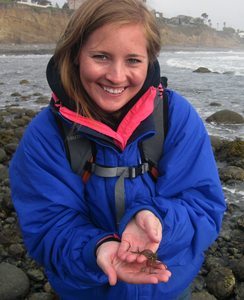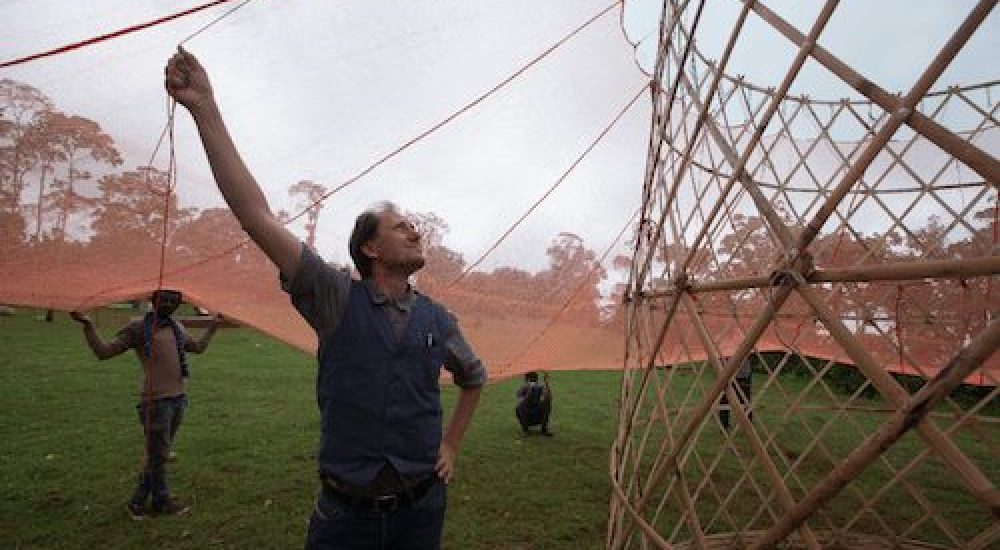Breakthrough is produced by Hollywood power players Ron Howard and Brian Grazer and their Imagine Entertainment company. Each week a different actor or director will delve into real world, human stories that connect the ways that science impacts our lives. The directors include actors like Angela Bassett and Paul Giamatti, Producer/Directors like Ron Howard, Bret Ratner (X-Man) and Akiva Goldsman (A Beautiful Mind; I, Robot) and Peter Beg (Friday Night Lights).
BOOST Collaborative will be publishing a special series of blogs from November 2 to December 14, highlighting each scientific discovery. The day after each episode’s air date, visit the blog to hear recaps and education connections from specialists reflecting on how each show’s topic relates to STEM. This week, we hear from Krissy Morrow and her reflections from Breakthrough’s Final Episode Six: Water Apocalypse. You can watch Breakthrough on the National Geographic Channel on Sundays at 9/8c.
How can we get students to care about their water use and help reduce Southern California’s dependency on fresh water?
What can students at a middle school in Vista, California do about the massive drought facing them and all of Southern California? How do we connect our situation to others around the world?
These are the questions I’ve been asking myself over the last few months as I enter into the school year.
For many years, the California State Science Standards have appeared almost as a checklist of facts students need to memorize. As we move toward implementing the Next Generation Science Standards (NGSS), students are no longer being asked to memorize facts, but rather apply their knowledge in a new way to accomplish some sort of task.
The engineering solutions to real world water problems shown in the Angela Bassett-directed episode of BREAKTHROUGH align well with the NGSS standards. Showing the episode to my students can really get them thinking about how the problem of fresh, clean water is not just isolated to our area, but is found in many places around the world. In every region in the world there are people trying to design solutions to local problems, and we can do the same in our classroom.
As we progress toward the NGSS standards, the 7th grade curriculum includes Energy and Matter in Systems.
Aquaponics is a great avenue for students to explore possible solutions to our dependency on water for agriculture, all while teaching the appropriate standards, performance tasks, and engineering practices associated with NGSS. If I want to get students interested, then I need to relate the topic to their everyday lives.
We have discussed water usage in California and how agriculture accounts for a large portion of our state’s water use. Students researched potential solutions to our water use on farms, and many of them came up with the idea of aquaponics as a way to help reduce our dependency on water, all while providing locally sourced produce and fish.
Our classroom is currently in the process of building three outdoor aquaponics systems that we can use to teach the NGSS standards. The design, building, and ongoing problems associated with our aquaponics systems will empower students to see the importance of taking on challenges faced by their communities, much like those shown in the water scarcity episode including those in Ethiopia, Southwest Australia, Central California, and Arizona.
Share what your school is doing to teach about water and our world!
 Krissy Morrow is a middle school science teacher at Madison Middle School in Vista, CA. With six years of experience in teaching at the middle school, high school, and college level, Krissy collaborates with fellow teachers and local organizations to promote hands-on, inquiry based lessons in her science classroom. She is a part of a team of teachers from eight California school districts working on an early implementation grant for the Next Generation Science Standards. Krissy has a masters in biology, with a focus on beach food web ecology, from the University of South Florida.
Krissy Morrow is a middle school science teacher at Madison Middle School in Vista, CA. With six years of experience in teaching at the middle school, high school, and college level, Krissy collaborates with fellow teachers and local organizations to promote hands-on, inquiry based lessons in her science classroom. She is a part of a team of teachers from eight California school districts working on an early implementation grant for the Next Generation Science Standards. Krissy has a masters in biology, with a focus on beach food web ecology, from the University of South Florida.
